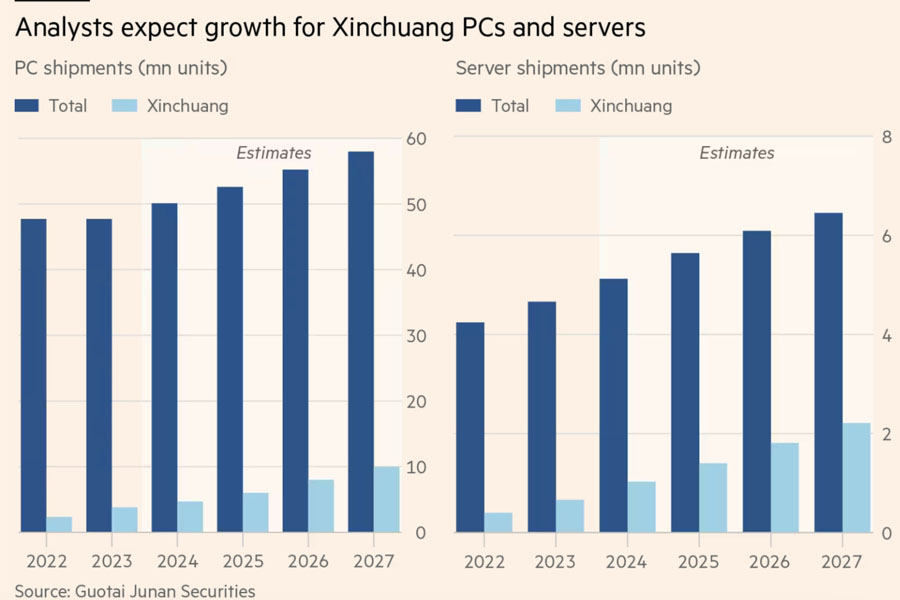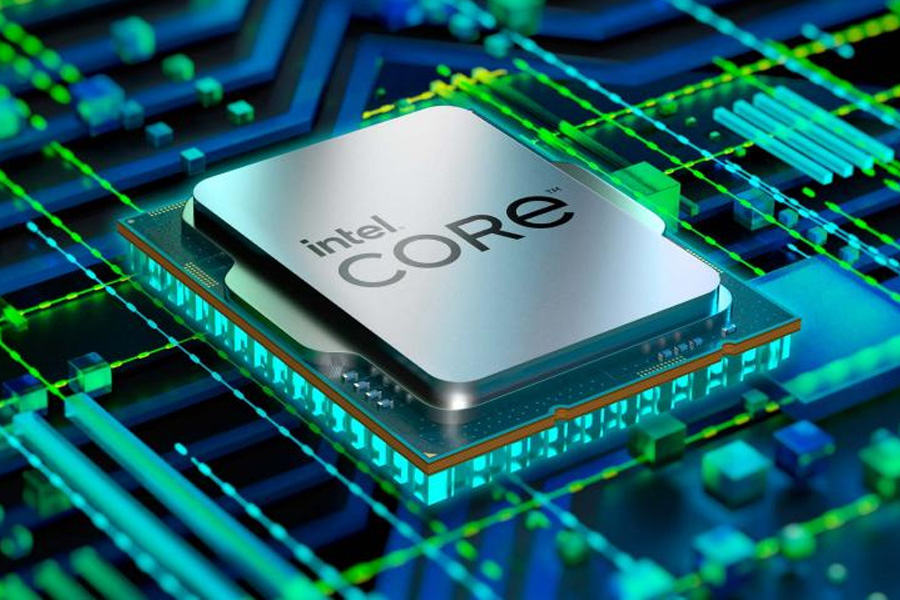
In a recent geopolitical change, China is on a move to ban the chipset from US companies like AMD and Intel. And following the news, stocks of chipmaking giants Intel and Advanced Micro Devices (AMD) took a hit on Monday morning. In this article, let’s dive into discussing the latest Chinese regulations imposed on US chip manufacturing giants
China Bans AMD and Intel Overview
Chinese Government’s Technology Restrictions
The move comes from the Chinese government’s efforts to restrict foreign technology from its federal computers. This includes operating systems like Microsoft’s Windows and other database software produced overseas. Moreover, Beijing’s push for technological independence, termed xinchuang or “IT application innovation,” is a key component of China’s strategy across military, governmental, and state sectors. State-owned enterprises are mandated to transition to domestic technology providers by 2027, as directed by the State-owned Assets Supervision and Administration Commission. Quarterly progress reports on IT system revamps have been initiated, although certain foreign technologies may still be permitted for use.

Currently, China has approved eighteen chips for use, all of which are from domestic companies. Among these approved entities are Huawei and state-backed Phytium, both of which are listed on the U.S. trade embargo.
Impact on U.S. Semiconductor Industry
Amidst the ongoing competition with China, the United States government is advancing its investments in chipmaking, with American semiconductor firms reaping the benefits. In parallel, Intel is among the recipients of funds from the CHIPS and Science Act, a $52.7 billion initiative aimed at bolstering domestic chip production.

Domestic Alternatives
The Chinese industry ministry, in late December, released a statement outlining three separate lists of CPUs, operating systems, and centralized databases deemed “safe and reliable” for a three-year period, all sourced from Chinese companies.
- Also, read
Market Response in the US
Initially, Intel’s stock dropped by about 3% when markets opened on Monday, with AMD also experiencing a 1% decline. However, by mid-morning, Intel managed to recover slightly, trading down only 2%, while AMD remained unchanged.
China bans AMD and Intel Conclusion
Although this move as understood only applies to government-related computers, this regulation could play an intensifying role in the China-US geopolitical landscape.
- Meanwhile, watch our review of Samsung Galaxy S24 Ultra

















![Best Ultrabooks To Buy in Nepal 2024 [Updated] Best Ultrabook Laptops in Nepal 2023 - June Update](https://cdn.gadgetbytenepal.com/wp-content/uploads/2023/04/Best-Ultrabook-Laptops-in-Nepal-2023-June-Update.jpg)
![Best Gaming Laptops in Nepal 2024 [Updated] Best Gaming Laptops in Nepal 2023 - June Update](https://cdn.gadgetbytenepal.com/wp-content/uploads/2023/04/Best-Gaming-Laptops-in-Nepal-2023-June-Update.jpg)

![Best Mobile Phones Under Rs. 15,000 in Nepal [Updated] Best Phones Under 15000 in Nepal 2024 Budget Smartphones Cheap Affordable](https://cdn.gadgetbytenepal.com/wp-content/uploads/2024/03/Best-Phones-Under-15000-in-Nepal-2024.jpg)
![Best Mobile Phones Under Rs. 20,000 in Nepal [Updated] Best Mobile Phones Under NPR 20000 in Nepal 2023 Updated Samsung Xiaomi Redmi POCO Realme Narzo Benco](https://cdn.gadgetbytenepal.com/wp-content/uploads/2024/01/Best-Phones-Under-20000-in-Nepal-2024.jpg)
![Best Mobile Phones Under Rs. 30,000 in Nepal [Updated]](https://cdn.gadgetbytenepal.com/wp-content/uploads/2023/12/Best-Phones-Under-30000-in-Nepal-2024.jpg)
![Best Mobile Phones Under Rs. 40,000 in Nepal [Updated] Best Phones Under 40000 in Nepal 2024 Smartphones Mobile Midrange](https://cdn.gadgetbytenepal.com/wp-content/uploads/2024/02/Best-Phones-Under-40000-in-Nepal-2024.jpg)
![Best Mobile Phones Under Rs. 50,000 in Nepal [Updated] Best Phones Under 50000 in Nepal 2024 Smartphones Midrange](https://cdn.gadgetbytenepal.com/wp-content/uploads/2024/02/Best-Phones-Under-50000-in-Nepal-2024.jpg)
![Best Flagship Smartphones To Buy In Nepal [Updated] Best Smartphones in Nepal 2024 Flagship Premium Samsung Apple iPhone Xiaomi OnePlus Honor](https://cdn.gadgetbytenepal.com/wp-content/uploads/2023/09/Best-Smartphones-in-Nepal-2024.jpg)